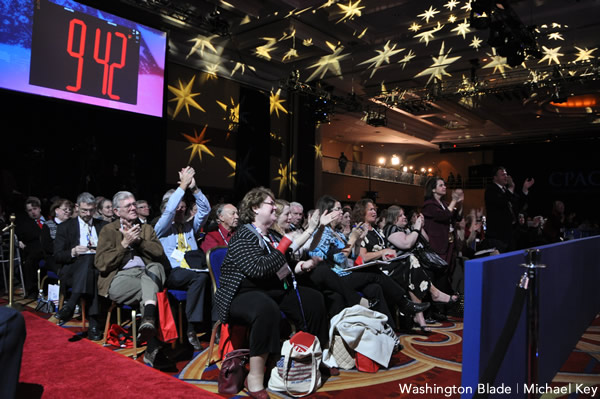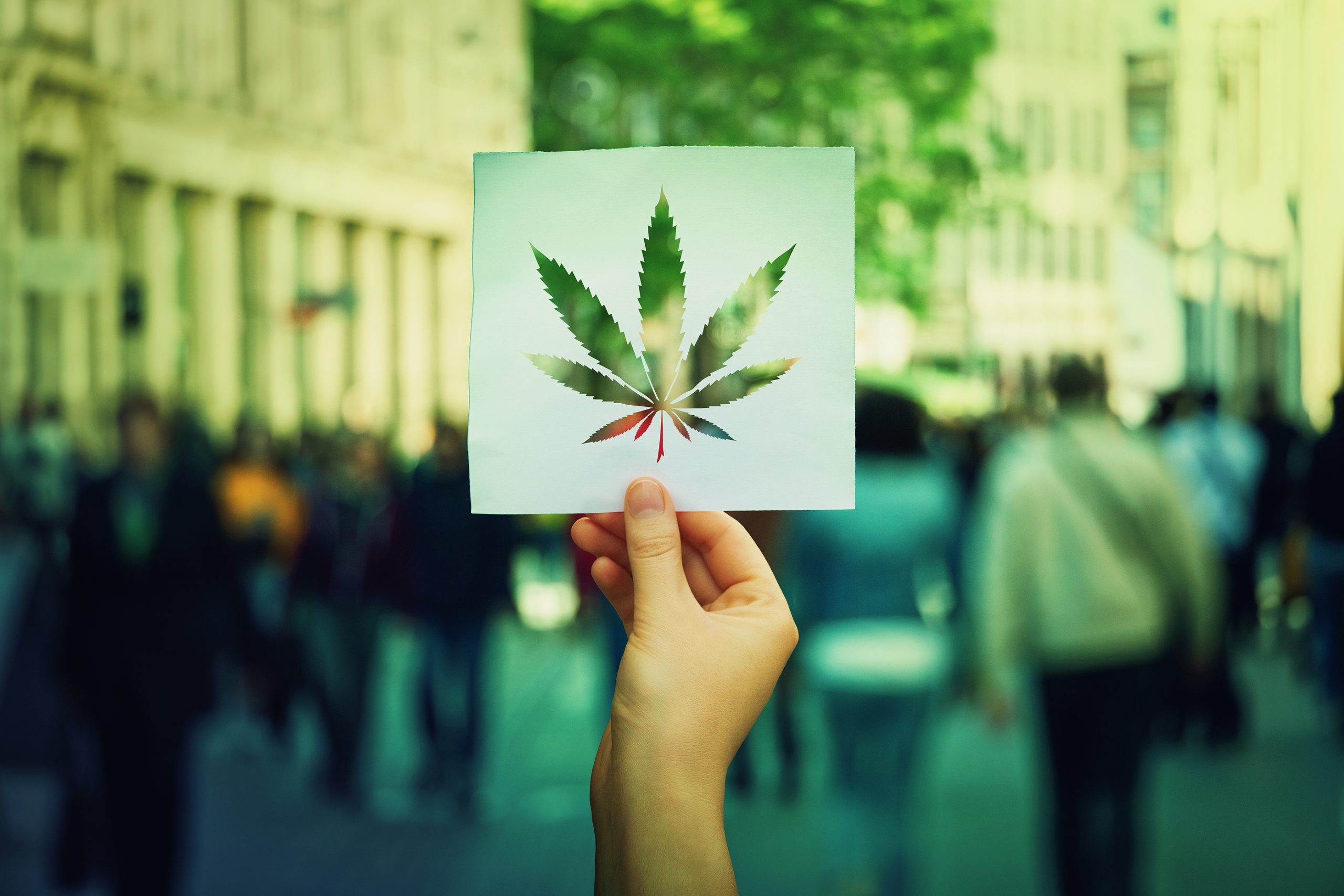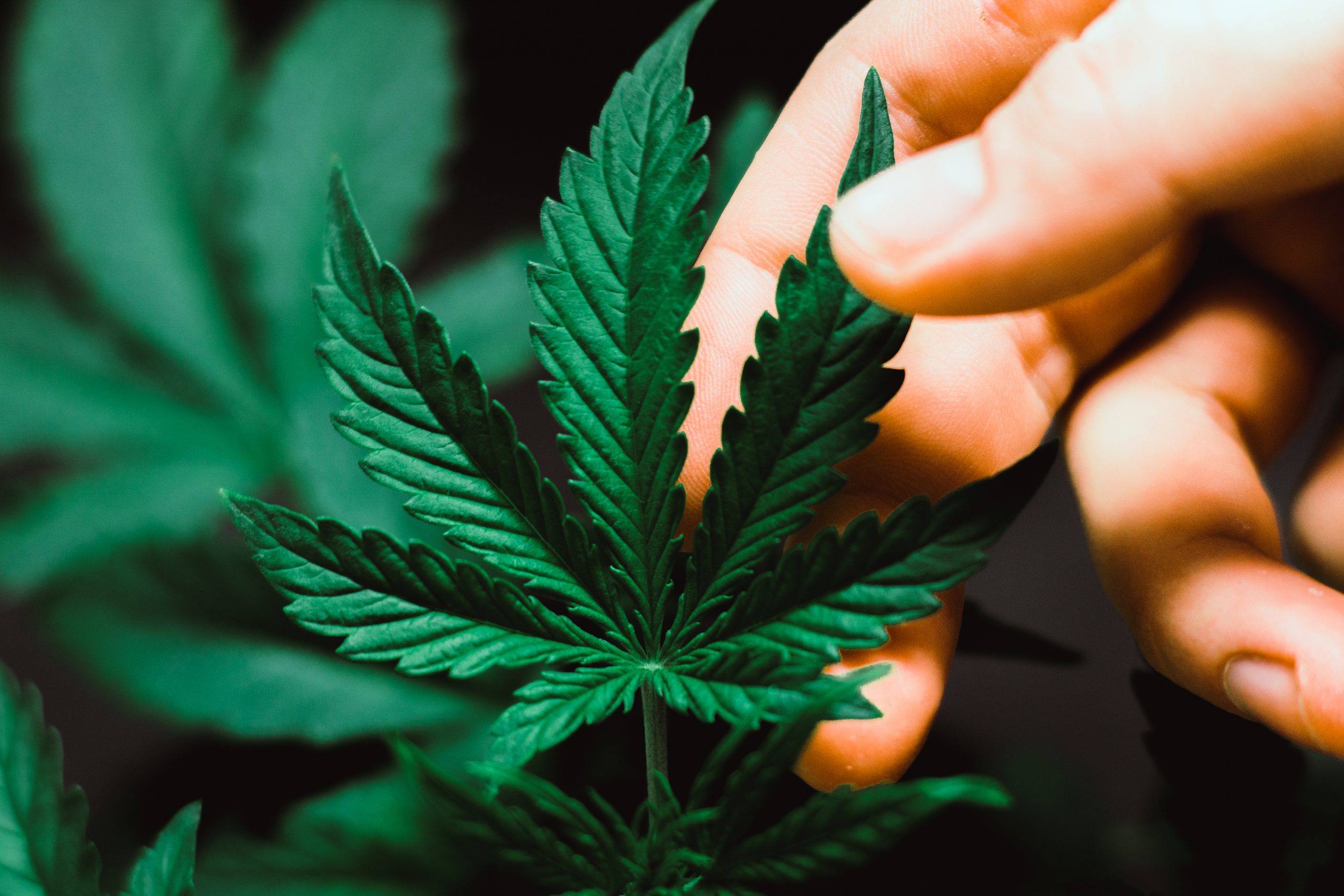Opinions
CPAC: The elephants’ graveyard
GOP pandering to the far right will ensure Obama’s re-election

Attendees at the CPAC conference clap during a speech last week. (Washington Blade file photo by Michael Key)
Last week’s Conservative Political Action Conference was another step on the road to defeat for this year’s eventual Republican presidential nominee. Pandering to the far right in the Republican Party as exemplified by the speeches given at CPAC will only move independents more solidly into the Democratic fold.
The nation is focused on the economy and creating jobs. Congress, which can’t get its act together to move forward on a real jobs program, has reached a new low with only 10 percent of voters believing they are doing a good job. We will again have an election where Bill Clinton’s mantra, “It’s the economy stupid” will be the issue on which most voters decide who shall be our next president.
Although things still aren’t great for many Americans, the economy is slowly improving and jobs are being created. This election won’t be decided based on the actual unemployment percentages but on the trend and how confident the American people are that the trend toward an invigorated economy will continue. All indications now are that this favors a second term for Barack Obama. I have assumed that Obama will have a hard time winning this election but Republicans can blow their opportunity, and judging by the spectacle at CPAC they are doing their best to do just that.
The fight over contraception is only the latest issue for those who want to blur the separation of church and state in favor of church doctrine being imposed on everyone. The majority of Catholics use contraception and the people are clearly in favor of civil law being fairly administered especially when they understand that it is not encroaching on religious freedom. When the Republicans make this about contraception, not religion, which Santorum is leading the way on, they will lose big.
Rick Santorum standing in a church in Texas with the minister intoning and laying on hands is not how most Americans see their president. When Mitt Romney vociferously comes out against the court decision declaring Proposition 8 unconstitutional, voters can rightfully ask, “And what will your position on LGBT rights be tomorrow?”
When politicians couch everything they do in terms of “God told me to do it” or “my beliefs direct my policy” we should all be very wary. God apparently speaks differently to each of us. He/she respects that we have differences even if some of his/her followers don’t. When Newt Gingrich stands before CPAC and speaks boldly about being pro-family, but advocates for policies that are anti-woman, anti-poor, anti-LGBT and tries to portray himself as the next Ronald Reagan, you have to laugh. He speaks to this ultra-conservative group as a disgraced politician, thrice married adulterer and they applaud. Watching him and his attentive current wife Callista, you’re reminded of what Maureen Dowd recently wrote in the New York Times, “Remember anytime a mistress marries her lover it creates a job opening.”
The highlights of the candidates’ speeches to CPAC included Santorum saying “our rights don’t come from government; they come from a much higher authority” and promising, “We will surround ourselves and this administration with people who share our values.” Romney, in the midst of a host of platitudes about flag and country, said, “I prevented Massachusetts from becoming the Las Vegas of gay marriage and I will defend DOMA, and fight for a constitutional amendment that defines marriage as a relationship between a man and a woman when I am president.”
These statements alone need to remind us that the next president may get to appoint two Supreme Court justices. The result of CPAC is that each of the candidates has made it more difficult for Republicans to meet their goal of making Obama a one-term president.
Even some supporters who see Obama as a flawed president see him as a good man. They give him high marks for keeping the nation safe and for his foreign policy. They appreciate that he is keeping his commitment to bringing our troops home and to ending the two wars he inherited from George Bush. Now they also see the beginning of an economic rebound and are realizing that his economic policies are having a positive impact on their lives and the lives of their families. From the bail out of the auto industry to the stimulus program that kept teachers and police on the job, things are slowly getting better and consumer confidence is again rising, which will lead to Obama’s re-election.
Opinions
The High Road – Walking the Pathway to National Cannabis Legalization
Grassroots organizing has been the driving force behind shifting public perception and pushing for policy changes in the cannabis industry

As we gear up for a major election year, the buzz around cannabis legalization is getting louder. Policymakers are starting to see the need for comprehensive reform, while advocates and small business owners in the industry are cautiously optimistic about the future. But let’s not kid ourselves, this system was designed to keep certain communities out, and it’s crucial that we continue to address these deep-rooted inequities as we blaze the trail forward. A step towards legalization that doesn’t prioritize equity and dismantle the barriers that have held back marginalized groups would be a major bummer. In this op-ed, we’re going to take a groovy journey through the evolution of grassroots organizing in the cannabis industry and highlight the importance of social equity in achieving true national cannabis legalization and boosting our humanity along the way.
Over the years, I’ve been right in the thick of it, helping to build grassroots organizations like Supernova Woman and Equity Trade Network. These groups have been on the frontlines, fighting for cannabis programs in Oakland and San Francisco. I’ve also rocked my own brand, Gift of Doja, and organized the first Cannabis Garden at a major neighborhood street fair, Carnaval San Francisco. I even served as the chair of the first Cannabis Oversight Committee in the nation. But the real magic has always happened in when working in coalitions. Each individual and organization brings a unique piece to the puzzle. Grassroots organizating is as challenging as crafting a democratic society but is worth the effort in generating workable implementable solutions. Collective efforts have been game-changers in shifting public opinion and paving the way for major policy changes at both the state and local levels.
As we navigate the path towards cannabis legalization, lobbyist and lawmakers can’t forget about the small business owners who have been grinding to build their dreams. Political advocacy and lobbying are important, but if we’re not uplifting the voices and experiences of those who have been fighting on the ground, we’re missing the mark. Big companies can hire lobbyists, but small business owners don’t have that luxury and if we are not in the room we are on the table. Coalitions allow for us to be in the room when we can’t physically be there. Our communities, especially people of color, have been hit hard by systemic oppression, from over-policing to mass incarceration and limited economic opportunities to limit our ability to be in the room of power and decision making.
Social equity needs to be front and center in any cannabis legalization efforts. It’s not enough to just remove criminal penalties or create a legal market. We need to actively work on repairing the damage caused by years of prohibition. That means fighting for resources, investment, and low-interest loans for small businesses. It means creating a tiered fee and tax structure that doesn’t crush the little guys. And it means opening up equity programs to all industries, not just cannabis. Social justice without economic access and repair is like a joint without a lighter – it just won’t spark the change we need. We have a responsibility to evolve the economy and break down unnecessary barriers. Activism, social justice, and economic reform are all connected, man.
Industry leaders, culture creators, advocates, and consumers alike, we all need to step up and promote social equity. It’s on us to support initiatives that provide resources, mentorship, and funding for individuals from affected communities to enter the legal cannabis market. And let’s not forget the power of our wallets. Buying from companies that align with our values and support the work we believe in can send a powerful message. Voting with our dollars might just be more impactful than showing up at the ballot box.
As we head into a major election year, the cannabis industry is at a crossroads. It’s a time for drumming up voter interest and for candidates to make promises that grassroots organizations have fought hard for. Small business owners will be navigating a tricky landscape, but we can’t lose sight of the power of collective work. By keeping social equity at the forefront, we can undo the harms of the past while building new frameworks that will shape a brighter future for all.
In conclusion, grassroots organizing has been the driving force behind shifting public perception and pushing for policy changes in the cannabis industry. But let’s not forget that true national cannabis legalization can only be achieved if we address social equity. It’s time for us to come together, listen to the voices of those most impacted, and walk the high road towards a future where cannabis legalization isn’t just about business opportunities, but also about healing and empowerment for all communities. Let’s light up a joint of social justice and blaze a trail towards a better tomorrow.
Nina Parks, Co-Founder of Equity Trade Network & Supernova Women [email protected]
Opinions
Canna Get An Amen! Coming Out as a Gay Cannabis Advocate for 420
In the intersection of cannabis advocacy and personal identity lies a powerful opportunity for growth and change.

I came out to my parents as gay when I was 15. But something that took me much longer to feel fully authentic around my family has been cannabis.
Even though I have been consuming cannabis since about that time over 12 years ago, it wasn’t until my most recent pit stop in Ohio on my way to Washington D.C for the 420 Unity Day of Action. There, amidst the backdrop of my home state recently legalizing cannabis, I made the decision to be unapologetically candid about my work in cannabis justice with my family. The response I received was unexpectedly affirming, and it sparked a profound shift within me.
Since Ohio legalized cannabis, something profound has shifted in the air. There’s a palpable sense of change on the horizon, a feeling that attitudes towards cannabis are evolving. Talks of how cool it would be to run a family business in the industry and just curiosity around what changes they could expect to come. Witnessing my family’s newfound openness and acceptance of my advocacy work and cannabis as a whole filled me with a sense of optimism as I embarked on a week of advocating for cannabis justice in D.C.
This experience served as a poignant reminder of the parallels between the journey of coming out and engaging in cannabis advocacy. Both require a willingness to confront societal norms and reveal aspects of oneself that may be met with judgment or resistance. Just as coming out is a deeply personal and transformative experience, so too is openly advocating for cannabis reform.
In both instances, there is a profound sense of vulnerability. The fear of rejection and the uncertainty of how others will perceive us can be overwhelming. Yet, there is also tremendous power in embracing our authenticity and owning our truth. Just as my family’s acceptance fueled my optimism for the fight for cannabis justice, so too can our collective authenticity inspire change on a broader scale.
As I extend an invitation to friends and allies in D.C. to join us in the fight for cannabis justice, I am reminded of the importance of solidarity and unity in our advocacy efforts. Together, we have the opportunity to stand alongside advocates, previously incarcerated individuals, and families still fighting for freedom at the White House Candlelight Vigil this Thursday by Lafayette Square, as part of our 420 Unity Day of Action. If you can’t make it, you can still support virtually by sending a letter and calling your representatives.
In the intersection of cannabis advocacy and personal identity lies a powerful opportunity for growth and change. By embracing authenticity and candor with ourselves and with our fellow advocates, we can not only transform ourselves but also contribute to the broader movement toward justice and equality. Let us continue to stand boldly in our truth, knowing that together, we can create a brighter and more inclusive future for all.
Commentary
Preserving our tapestry: Navigating European elections, empowering queer women and the imperative of safe spaces
EU elections will take place in June 9

As the European Union anticipates the upcoming elections in June, a disconcerting wave of transphobic rhetoric has swept across the continent, notably in 21 EU member states, according to a recent report by ILGA-Europe. The 13th Annual Review of the Human Rights Situation of LGBTQ People in Europe and Central Asia stresses the alarming rise in hate speech targeting the LGBTQ and intersex community. This growth in negativity — which particularly is directed at transgender people — raises profound concerns about the state of inclusivity, human rights and democracy within the EU.
The alarming surge of transphobia in European politics
According to the report, there is a trend of hate speech coming from politicians across 32 European countries of which 21 being EU member states. Painting a stark picture of the challenges faced by the LGBTQ community. In a staggering list that includes Austria, Germany, Spain and others, politicians have increasingly weaponized anti-trans rhetoric. Exploiting children is a tactic often used as part of scare strategies to create opposition to trans minors’ access to healthcare and educational facilities, extending this divisive approach to a broader trend where politicians argue that restricting information about LGBTQ people is a necessity to protect minors.

The rise in transphobic rhetoric is not only confined to politics but it has other tangible consequences. The report highlights a concerning escalation in suicide rates and mental health issues, particularly in LGBTQ youth. Violent protests outside schools and libraries have created unsafe environments, adding to the growing list of challenges faced by the community.
The far-reaching impact of demonization by politicians and the introduction of restrictive legislation underscores the need for urgent action. Hate speech is not merely an affront to people’s rights, it is an assault on the very core values upon which the EU was founded. As ILGA-Europe Advocacy Director Katrin Hugendubel notes, human rights, especially those of LGBTQ people, are facing a significant challenge from far-right forces. The exploitation of LGBTQ rights to undermine democracy, human rights and the rule of law highlights the divisive nature of the current political landscape.
As ILGA-Europe prepares to launch the “Come Out 4 Europe” campaign in response to these alarming trends, the need for visible and supportive queer female spaces is more apparent than ever. The campaign, seeking commitments from European Parliament candidates to protect the rights of LGBTQ people, underscores the urgency of safeguarding human rights, democracy and freedom.
The crucial role of queer women in European elections
Belgium, amid this backdrop of rising transphobia, is preparing for the European elections on June 9, 2024. The importance of this electoral process cannot be overstated, especially for queer women. With citizens aged 16 and above casting their votes to elect 22 members of the European Parliament (MEPs), it’s a pivotal moment for the LGBTQ community.
The voting process in Belgium follows EU law, utilizing a proportional representation system. Voters choose one party, either by marking the box above the party list or selecting individual candidates on the list. The total ballot forms for each party determine seat distribution, and preferential votes then decide which candidates secure a seat in the European Parliament.
Educated voting in the European elections is essential to queer women and the importance cannot be stressed enough. Throughout history they have faced unique battles, but this community holds the power to shape policies that directly influence their lives. By engaging in the democratic process, queer women can actively challenge the current surge in hate speech towards trans people by voting for electing representatives who actively advocate for LGBTQ rights.
Representation is more than a mere buzzword. It matters. Understanding candidates’ positions on LGBTQ issues is key and requires educating oneself on candidates’ stances as to allow queer women to vote for representatives who genuinely champion LGBTQ rights. A diverse and inclusive representation ensures that the concerns and voices of the queer community are not just heard but which are acted upon. Decisions within the European Parliament influence policies ranging from anti-discrimination laws to access to healthcare. An informed vote makes sure that legislation promotes equality, acceptance and the protection of LGBTQ rights.
By being educated on the European elections and its candidates, queer women embark on a journey of self-empowerment. By supporting candidates who prioritize inclusive curricula, they contribute to addressing LGBTQ history, health and rights, encouraging a more accepting future.
The undeniable need for physical queer women spaces
Since the European elections are nearing, the importance of physical spaces for queer women to gather and discuss voting and the candidates becomes increasingly evident. While online spaces offer the chance to connect and discuss, they come with their own unique challenges, including the spread of misinformation and miscommunication. In navigating the democratic landscape, the value of in-person gatherings for education and discussion cannot be stressed enough.
The world is saturated with digital information, and misinformation can easily infiltrate online spaces. Physical gatherings allow for a more controlled environment with direct feedback from peers, where queer women can share accurate and reliable information, ensuring a more nuanced understanding of candidates, policies and the electoral process.
In the lead-up to the European elections, we have to recognize that physical spaces for queer women are crucial. They do not only combat misinformation, disinformation and miscommunication but also serve as a vital space for shared learning. In-person gatherings create the foundation for an informed and engaged electorate, promoting a collective voice that resonates in the democratic process. The power of change lies not just in our votes but in the shared wisdom and unity forged in the physical spaces we create together.
The plight of the Crazy Circle and the call for investment in queer women spaces
After the closing of Brussels’ iconic Crazy Circle, a feminist queer space that has served as a safe haven for the LGBTQ community, it becomes increasingly evident that the struggle for queer women-only spaces in Belgium is a critical issue demanding our attention.
For the past five years, Crazy Circle has been a testament to the resilience of the LGBTQ community, creating a safe and celebratory space for queer women and their allies. However, its closure after the previous management leaving for unknown reasons and current fundraising attempt by the new owners to reopen highlight the challenges faced by such spaces in Belgium. These establishments play a vital role not only as social hubs but as catalysts for education, empowerment and advocacy. Fortunately for the new owners they recently reached their fundraising goals and raised over 50,000 euros to reopen Crazy Circle.
The loss of a space like this underscores the broader struggle faced by queer women-only spaces in Belgium. Beyond being social hubs, these spaces are vital agents of change, providing a haven for education, empowerment and advocacy. We must recognize that our commitment to the LGBTQ community extends beyond words.
The “Come Out 4 Europe” campaign by ILGA-Europe serves as a proactive response to the alarming trends in hate speech. It calls for clear political commitments on safeguarding human rights, democracy and freedom from candidates in the upcoming European Parliament elections in June. Belgium, with its own elections on the horizon, stands at a crossroads where the choices made will resonate far beyond its borders.
If we want to inform queer females about campaigns like “Come Out 4 Europe” we need spaces like the Crazy Circle. Its closure is a stark reminder of the fragility of these vital spaces. It’s a call to action, urging us to invest more in preserving and expanding queer women-only spaces. The struggle faced by Crazy Circle is not an isolated incident; it reflects a broader challenge that demands a collective response all over the world.
By fighting to preserve and expand queer women-only spaces, we are not merely safeguarding physical venues. We are investing in the education, empowerment and advocacy of the LGBTQ community. These spaces are not mere bars or gathering spots; they are crucial agents of change and empowerment.
Building a future of inclusivity
As we see what happened to Crazy Circle in Belgium, let us use this moment as a catalyst for change. It is time to rally together behind existing queer women spaces, ensuring their survival and actively working towards expanding and creating new ones. By doing so we empower individuals to educate, advocate, and, most importantly, vote for a future where safety, equality and acceptance prevail for all members of the LGBTQ community. It’s not only a matter of choice to preserve these spaces; it is a commitment to a world where everyone has the right to be safe, heard and celebrated.
In navigating the complex tapestry of the European elections, the empowerment of queer women spaces through informed voting and the preservation of physical queer women spaces become integral threads. As we stand on the precipice of change, our choices today will shape the inclusive and accepting future we envision. Together, let us weave a tapestry that celebrates diversity, protects human rights and builds a future where every voice, especially those of queer women, is not just heard but cherished.
-

 Africa3 days ago
Africa3 days agoCongolese lawmaker introduces anti-homosexuality bill
-

 Colorado5 days ago
Colorado5 days agoFive transgender, nonbinary ICE detainees allege mistreatment at Colo. detention center
-

 World3 days ago
World3 days agoOut in the World: LGBTQ news from Europe and Asia
-

 Real Estate4 days ago
Real Estate4 days agoBoosting your rental property’s curb appeal











